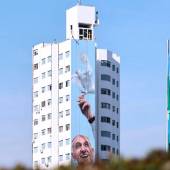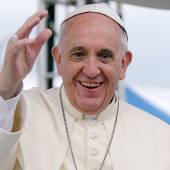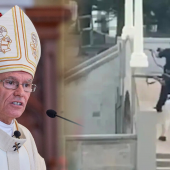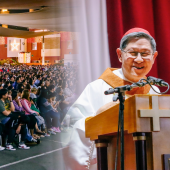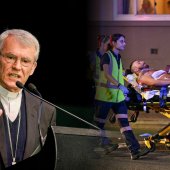Argentina: Priest Runs for Congress, Diocese Distances Itself

Father Juan Carlos Molina, a priest of the Diocese of Río Gallegos in southern Argentina, has announced his candidacy for Congress in the upcoming national elections. He will head the Peronist Party’s list in Santa Cruz province, a move that immediately stirred debate about the role of clergy in politics, according to Zenit.
Within hours of the announcement, the Diocese of Río Gallegos issued a statement clarifying that Molina’s decision was a “personal initiative” with no endorsement from the Church. The communiqué, signed by Bishop Ignacio Medina, stressed that during the campaig, and if elected, Fr. Molina will not exercise priestly ministry, either publicly or privately. “Whatever Molina says on the campaign trail or in Congress,” the statement added, “should not be understood as an expression of this diocese.”
Fr. Molina is not new to public life. During the presidency of Cristina Fernández de Kirchner, he headed SEDRONAR, the government’s drug policy agency.
As reported by Zenit, Molina has also highlighted his ties with Rome. He has described himself as a devoted admirer of the late Pope Francis, recalling an emotional moment when he prayed at the pontiff’s tomb. Shortly afterward, according to his own statement, he held a wide-ranging conversation with Pope Leo XIV, the current pope, about Argentina’s poverty, unemployment, indigenous struggles, and political polarization. “He’s a great listener,” Molina recalled, “he spoke to me with his eyes.”
The case touches on a sensitive canonical issue. Canon 287 of the Code of Canon Law prohibits priests from active participation in political parties or public offices unless specifically authorized by ecclesiastical authority. The Church stresses that clergy are called to serve all people, and direct involvement in partisan politics risks compromising that mission.
Fr. Molina’s candidacy, therefore, raises not only political questions in Argentina but also ecclesial concerns about the delicate boundary between priestly ministry and political ambition.
Radio Veritas Asia (RVA), a media platform of the Catholic Church, aims to share Christ. RVA started in 1969 as a continental Catholic radio station to serve Asian countries in their respective local language, thus earning the tag “the Voice of Asian Christianity.” Responding to the emerging context, RVA embraced media platforms to connect with the global Asian audience via its 21 language websites and various social media platforms.









